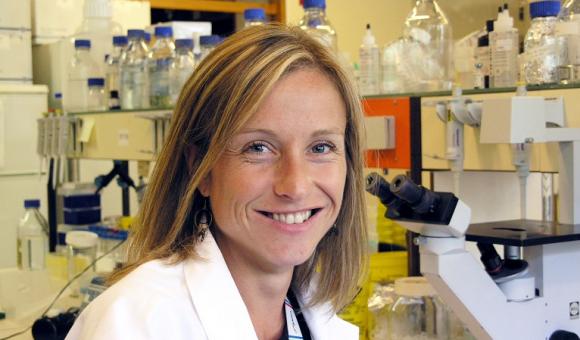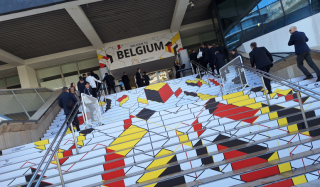
Bénédicte Machiels, a researcher in the Faculty of Veterinary Medicine at Liege University, has been awarded a grant by the European Research Council (ERC Starting Grant) for her project VIROME (VIral Regulation Of Monocyte Education).
Bénédicte Machiels works in the laboratory of Immunology-Vaccinology at the FARAH centre (Fundamental and Applied Research for Animals and Health) in the Faculty of Veterinary Medicine at Liege University. She was recently awarded a grant by the European Research Council (ERC Starting Grant) of 1.5 million euros for her project VIROME (VIral Regulation Of Monocyte Education).
With this research, she hopes to uncover the mechanisms responsible for the education of monocytes, with a view to developing therapeutic strategies to improve control or redirect certain new immune reactions.
There is tremendous variation in the immune reactions developed by individuals when exposed to a given stimulus. This is partly explained by our genetic makeup, but also, and above all, by our prior exposure to specific environmental elements.
Bénédicte Machiels and the team in the laboratory of Immunology-Vaccinology at the FARAH centre are working on these mechanisms in order to develop new therapeutic strategies allowing the control of new immune reactions.
Bénédicte Machiels graduated from the Faculty of Veterinary Medicine at Liege University. She continued her studies with a PhD as F.R.S.-FNRS Research Fellow in the laboratory of Immunology-Vaccinology (FARAH), under the supervision of Professor Laurent Gillet. In 2011, she obtained a mandate as Head of Research F.R.S.-FNRS, allowing her to carry out postgraduate work at the Centre d’Immunologie de Marseille Luminy (CIML). Her research was published in 2017 in Nature Immunology. Bénédicte Machiels is now working in the laboratory of Immunology-Vaccinology, at the FARAH centre in the Faculty of Veterinary Medicine.
ERC Grants are issued by the European Research Council in order to fund European research projects. The procedure, which is extremely selective, considers only the best researchers and research projects of the highest level, showing the courage and competence to tackle research that is both unprecedented and eligible, and, if successful, will substantially enrich scientific knowledge. There are 5 types of grants: Starting Grants, Consolidator Grants, Advanced Grants, Synergy Grants and Proof of Concept. ERC Starting grants are designed to help young researchers (2-7 years of experience after achieving their PhD) with very promising scientific results and an excellent research proposition.
Source: Liege University







